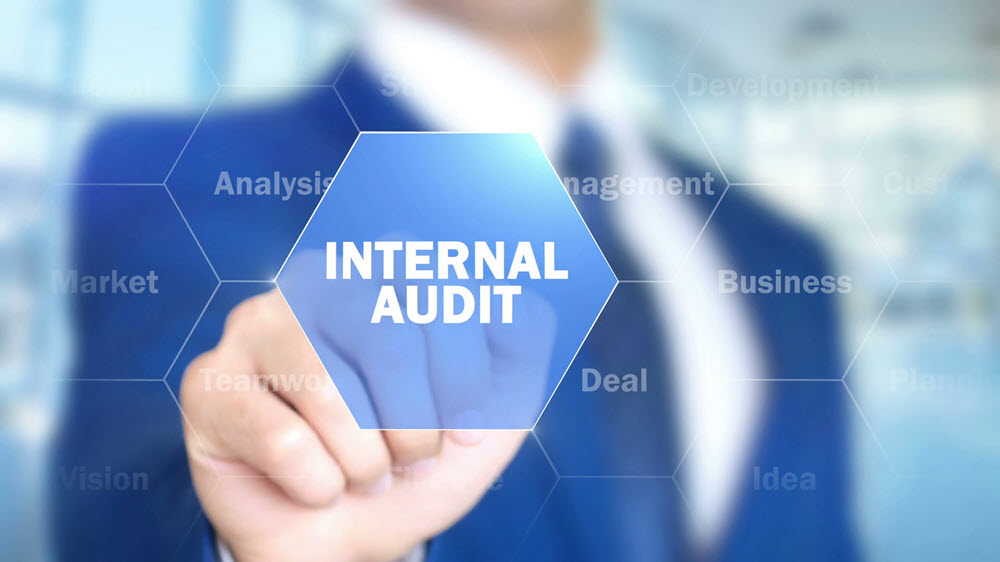EQMS Blog

Using Internal Audit Consulting Services For Your Organisation
One cannot disagree on the fact that in order to work more efficiently, organisations have to evaluate their internal controls and processes on continual basis. As a matter of fact, this should become routine assignments and become part of the company culture. The Institute of Internal Auditors (IIA) define internal audit as “an independent, objective assurance and consulting activity designed to add value and improve on an Organisation’s operations”. In the current era, the role of the internal auditor has changed due to challenging economic situations, varying regulatory requirements at and fast pace and competitive business culture.
In the present day, the internal audit function needs to go beyond regulatory requirements; it should offer support in improving efficiency and performance of an organisation. Thriving entities do have a clear understanding about the need and importance for internal auditing, however they can often benefit from internal audit consulting services occasionally to support with the job. When it comes to the scope, internal audit work support corporate governance, mitigation of risks and drive continual improvement.
When considering internal audits as an assurance service, then it is an objective investigation of evidence, with the aim of offering an independent evaluation on risk management, governance and control of processes for a given entity. An internal audit can be quite useful in the classification of best practice recommendations, identification of discrepancies and recognising inactive areas for restructuring.
When setting up an internal audit function, whether it is with internal resources or outsourced internal audits from a third party, following necessary steps need to be considered.
Creating Time for Internal Audit Plan
As an initial step, an internal audit function is supposed to have vacant time to offer internal audit consulting services for the organisation. An internal audit program needs to be developed and an audit schedule created based on risk. Management needs to ensure adequate internal or externa resources are available to carry out the audits according to plan and cover additional audits if required.
Awareness of the Management
There is a strong need to raise awareness with management about the services provided within the scope of internal audit consulting services provided. Internal audits are an essential tool for continual improvement and should be embraced by management. If the internal audit function is not supported by management, or management are not fully aligned with their objective, the outcome and efficiency of the internal audits are limited.
Quick Responsiveness
In majority of cases, the internal audit function is only approached by senior management for advice when something happens and assistance is required rapidly. In the current era, internal audit needs to be more approachable and customers focused. It should be considered an activity to continually improve rather than firefighting and problem solving.
Align Responsibilities
While using internal audit consulting services, there is a need to ensure that it is a genuine advisory service and not a service to carry out work that should be done by management. The rationale behind this approach, is to avoid the problem where internal audits can be perceived by management as their resource, to carry out tasks that are purely their own responsibility.
If you are interested in support with your internal audit program or need training of your employees, then contact us for a free consultation on how we can assist with your project.
Continue to Outsourced Internal Audits
Request a free consultation
Contact us to discuss your needs and see how we can support to reach your goal.

Recent posts

In today's digital age, businesses are constantly exposed to various cyber threats. As a result, companies must adopt a proactive approach to cybersecurity to prevent data breaches, theft, and other...

Quality management systems are essential in ensuring that organisations can deliver quality products and services consistently. The International Organisation for Standardization (ISO) developed the ISO 9001 standard to help organisations...

ISO 14001 is a globally recognised standard for environmental management systems (EMS) that helps organisations manage their environmental impact and improve their sustainability performance. Obtaining this certification demonstrates a company's...
Just a Few of Our Clients
Request a Free Consultation
Contact us to discuss your needs and see how we can support to reach your goal.















